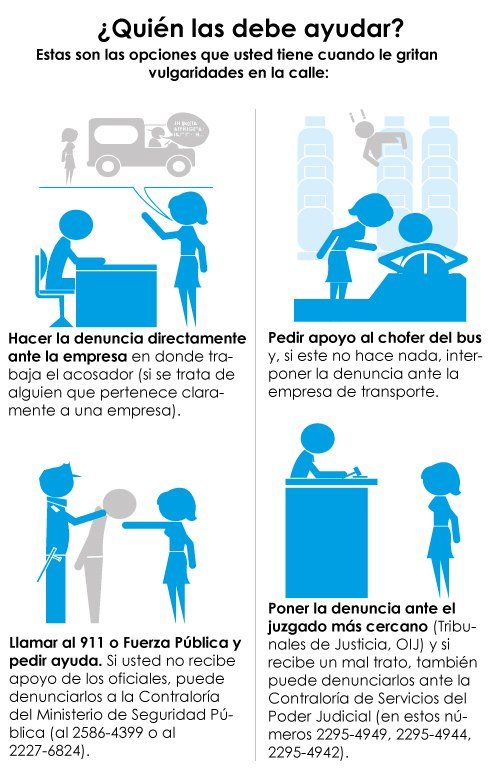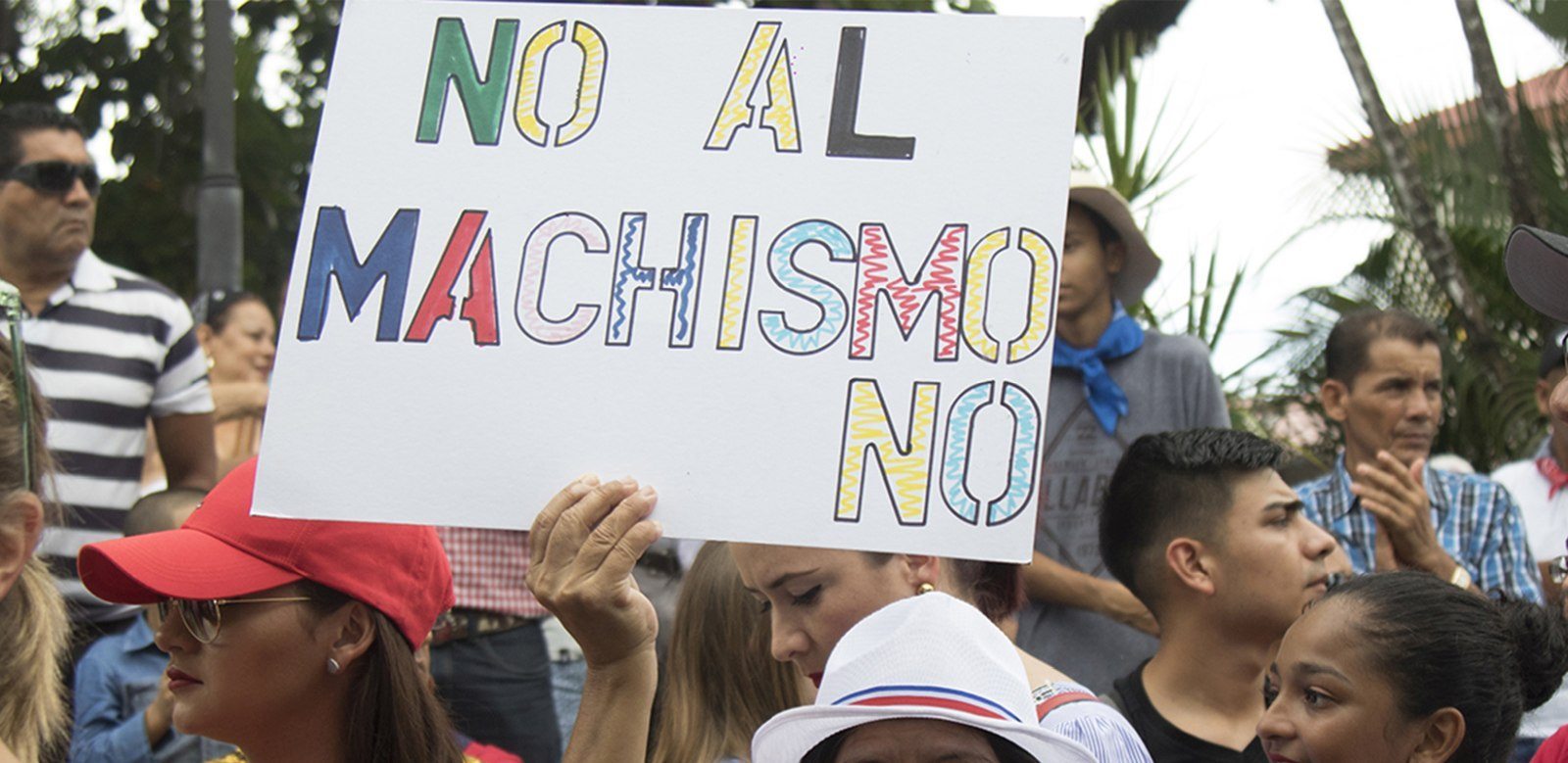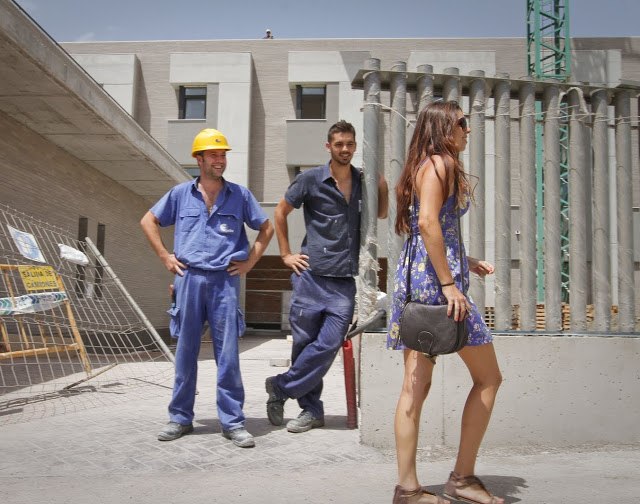
Esther Jiménez, a law student a the University of Costa Rica (UCR), is the victim of obscene comments and stares every day on the street and the bus when she travels from Nicoya to Liberia to attend class.
She is one of the organizers of the first march against street harassment in Nicoya, which will take place on July 25, 2017. However, she has never reported the harassers to authorities because she knows there are still no legal consequences for the harassment.
“I think that one normalizes it because one doesn’t think it’ll happen. I’ve never filed a complaint and I don’t know how effective that would be,” she said.
In fact, thus far this year the National Institute for Women (in Spanish, INAMU) has not yet received a single request for orientation stemming from cases of street harassment.
That’s why we at The Voice of Guanacaste have decided to write this article: people who are victims of obscene words or acts, disrespectful propositions, or lascivious glances do have legal tools to defend themselves from these abuses.
Even if there is no law that clearly addresses street harassment in all of its extremes nor sends aggressors to jail, it is possible to report and fine the aggressor.
Larissa Arroyo, a human rights lawyer, has provided legal help to women who have been victims of street harassment. She explained that there are several ways to defend oneself.

It is not necessary to hire a lawyer or spend much money to make a report. What you need is specific, complete information so that the process is effective. You’ll also need patience, Arroyo explained.
“You need the aggressor’s information (full name), proof like a video, photographs, and witnesses,” said Arroyo.
Response time varies with every case, and could be more than a year.
Why no jail time?
Verbal street abuse is considered an infraction and not a crime according to the Penal Code.
The main difference, in terms of consequences, is that an infraction cannot be penalized with jail time, but the accused can be fined.
If you shout at a women on the street and she reports it to the authorities, you could be fined between five and 30 days’ pay (from around ¢70,000 to ¢426,000). The amount is based on the base salary for an “office worker 1” in the court system.
However, the fines do not appear to be enough to stop the aggression that women suffer on the streets of Guanacaste – and throughout Costa Rica. Arroyo feels that a legal vacuum exists, so she thinks it’s necessary to replace the laws so that they can impose criminal sanctions on guilty parties.
“The Costa Rican judicial system must eradicate this type of violence with an effective mechanism to report incidents, follow up, and dictate sentences,” she added.
Jiménez agrees that there should be a strong sanction for these abuses, but beyond sending harassers to jail, she says that the mentality and culture should change.
“Fines and jail time won’t solve the problem. We need to educate and change the mentality not to abuse women,” said Jiménez.
“We urgently need awareness campaigns for those who don’t even know that they’re harassers, and to empower victims,” said Arroyo.
Munis stuck
The municipal councils in Liberia and Nicoya declared themselves as harassment-free in March of this year. The goal is to create awareness campaigns in public spaces, encourage businesses to follow these practices, and foment female-empowerment strategies.
Read also: Nicoya declared as a harassment-free canton
However, for the time being these intentions only exist on paper; the municipality hasn’t promoted any concrete actions.
Juan Flores, president of the Liberian council, said that they haven’t received any updates on the topic from the women’s rights committee, which is an organization that presented a motion so that the council members might declare the canton as free from street harassment.
“The council only agreed to make the declaration,” said Flores, who committed to asking for a report on the subject.
Read also: Liberia says adios to street harassment
The same thing is happening in Nicoya. The council president, Karen Melissa Arrieta, said that they have not yet seen any progress.
“We’re going to hold the department of women’s social management accountable,” said Arrieta.
Outside of the municipalities there are a few advances. Ester Jiménez said that there is a group of 30 women from Nicoya who are in the process of creating women’s committee in order to make victims of street harassment more visible as well as to raise consciousness on the subject.








Comments